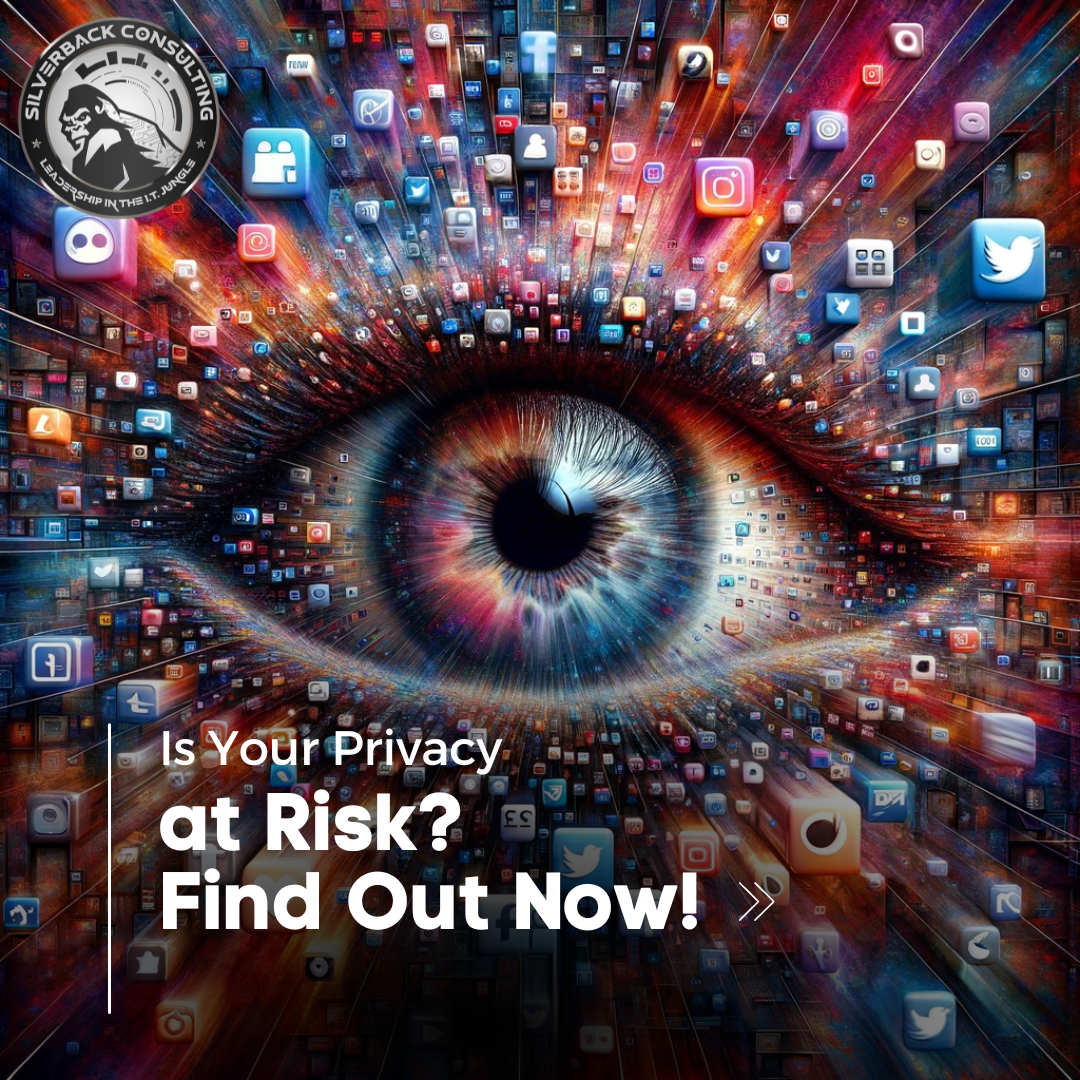Introduction
In today’s digital age, where information flows freely and technology constantly evolves, the question of privacy has become more crucial than ever before.
As you read these words on your device, have you ever stopped to wonder if your privacy is at risk?
In this article, we will explore the various aspects of privacy in the modern world, shedding light on potential risks and offering tips on how to protect your personal information.
Understanding Privacy and Its Significance

Privacy is the right to keep personal information and activities hidden from the prying eyes of others. It’s like closing the curtains in your home to prevent passersby from peering inside. Privacy allows you to control what you share with the world and what you keep to yourself.
The Digital Age: Where Privacy Concerns Thrive
In this digital age, we’ve embraced technology like never before. Our smartphones, laptops, and other devices have become extensions of ourselves. But with this convenience comes a price – the constant exposure of our personal lives.
Social Media and Your Privacy
Social media platforms have become an integral part of our lives.
We share our thoughts, photos, and even our location with friends and followers. But have you ever wondered who else might be watching your posts?
Social media can be a treasure trove of information for advertisers and even malicious actors.
Online Shopping: Convenient or Risky?
Online shopping has completely transformed the way we make purchases, offering unparalleled convenience and accessibility.
However, with every transaction, whether it involves entering your credit card details or shipping address, you may unknowingly be putting your personal data at risk.
The pressing question here is, “Is your privacy at risk when you shop online?” Just how secure are these digital shopping platforms, and who exactly has access to your valuable purchase history?
Smart Devices: Are They Spying on You?
Smart home devices make our lives more convenient. However, these devices often collect data about our daily routines and preferences. Are they only serving you, or could someone else be interested in the data they gather?
Data Breaches: When Your Information Falls into the Wrong Hands
Data breaches have become all too common. We’ve seen countless headlines about major companies suffering cyberattacks, leading to the exposure of customer information. What happens if your data ends up in the hands of cybercriminals?
Privacy Tools and Best Practices
Thankfully, there are ways to protect your privacy. We’ll explore the tools and practices that can help you safeguard your personal information.
1. Use a Virtual Private Network (VPN)
A VPN is like an invisibility cloak for your online activities. It encrypts your internet connection, making it challenging for hackers or prying eyes to intercept your data.
Whether you’re browsing the web or conducting financial transactions, a VPN adds a layer of security.
2. Password Managers
Managing a myriad of complex passwords is challenging, but it’s vital for your online security. Password managers create strong, unique passwords for each of your accounts and store them securely. This reduces the risk of falling victim to password-related breaches.
3. Two-Factor Authentication (2FA)
Enable 2FA wherever possible. This additional layer of security requires you to provide a second form of verification, such as a text message code or fingerprint scan, in addition to your password. It serves as a strong defense against unauthorized entry.
4. Regular Software Updates
Ensure your operating system, software, and applications are consistently updated. Developers release updates not just for new features but also to patch vulnerabilities. By staying current, you thwart potential exploits that cybercriminals might use.
5. Browser Privacy Settings
Most modern browsers offer privacy settings that allow you to limit the data websites can collect about you. Adjust these settings to your comfort level, blocking cookies, trackers, and third-party scripts.
6. Secure Your Wi-Fi Network
Your home Wi-Fi network can be an entry point for cyberattacks. Change the default router password, use strong encryption (WPA3), and hide your network’s SSID (the network name) to make it less visible to potential intruders.
7. Regularly Review App Permissions
Apps on your mobile devices often request access to various permissions. Take the time to review these permissions and grant access only to what’s necessary for the app’s functionality. Avoid apps that ask for excessive permissions.
8. Email Encryption
Consider using encrypted email services that protect the content of your emails from being intercepted. This is particularly important for sensitive information like financial or personal details.
9. Think Before You Share
Before sharing personal information online, ask yourself if it’s truly necessary. Be cautious about sharing sensitive details, such as your full address or social security number, unless it’s with a trusted entity.
10. Educate Yourself
Keep yourself updated on the most recent privacy threats and recommended security practices. Technology evolves at a breakneck pace, and fresh risks continually surface. Your initial line of defense lies in staying informed about potential dangers and learning how to mitigate them effectively.
By incorporating these privacy tools and best practices into your everyday digital routines, you can substantially decrease the likelihood of your personal information being compromised.
Always bear in mind that your privacy is worth safeguarding, and by taking the appropriate measures, you can relish the advantages of the digital age while minimizing the potential threats to your privacy.
Is your privacy at risk? Stay vigilant and protected.
Conclusion
In conclusion, the phrase “Is your privacy at risk?” rings alarmingly true in today’s digital world, where security concerns loom large.
With the ever-present threat of cybersecurity incidents, malware attacks, and data privacy violations, both individuals and business owners must remain vigilant.
Data privacy violations can have serious legal consequences for the responsible parties, ranging from fines to lawsuits and regulatory penalties, depending on the severity of the breach and applicable laws. It’s imperative to recognize that your online accounts are potential targets for malicious actors.
However, amidst these challenges, you can seize control of your personal information by staying informed and employing the right tools.
By making informed choices and implementing robust cybersecurity measures, you can effectively safeguard your digital presence.
Remember to keep your digital curtains drawn to protect what matters most—your privacy.
FAQS
How can I protect my privacy online?
Protecting your online privacy begins with strong, unique passwords, two-factor authentication, and regular software updates. Additionally, using a virtual private network (VPN) can add an extra layer of security by encrypting your internet connection.
Are there any privacy-friendly social media platforms?
Yes, there are social media platforms that prioritize user privacy. Look for platforms with strong privacy policies and features that allow you to control who sees your content and how your data is used.
What should I do if I suspect my data has been breached?
If you suspect a data breach, act swiftly. Change your passwords, monitor your accounts for suspicious activity, and consider freezing your credit. Contact the affected service provider and follow their guidance on securing your account.
Can my smart home devices be hacked?
Smart home devices can be vulnerable to hacking if not properly secured. To reduce the risk, regularly update your device’s firmware, use strong, unique passwords, and consider isolating your smart devices on a separate network.
Your Privacy Is Under Attack — Are You Ready?
Data breaches, phishing scams, and cyberattacks aren’t just headlines—they’re daily threats to your business. We help SMBs, dealerships, medical practices, non-profits, and DoD contractors stay ahead of hackers with customized cybersecurity solutions.
🛡 Every day without protection is another day of risk.
Shield your business now—call us today at (719) 452-2205 or fill out the form below.
Silverback Consulting
303 South Santa Fe Ave
Pueblo, CO 81003
719-452-2205
support@silverbackconsulting.us
“Leadership in the I.T. Jungle”




